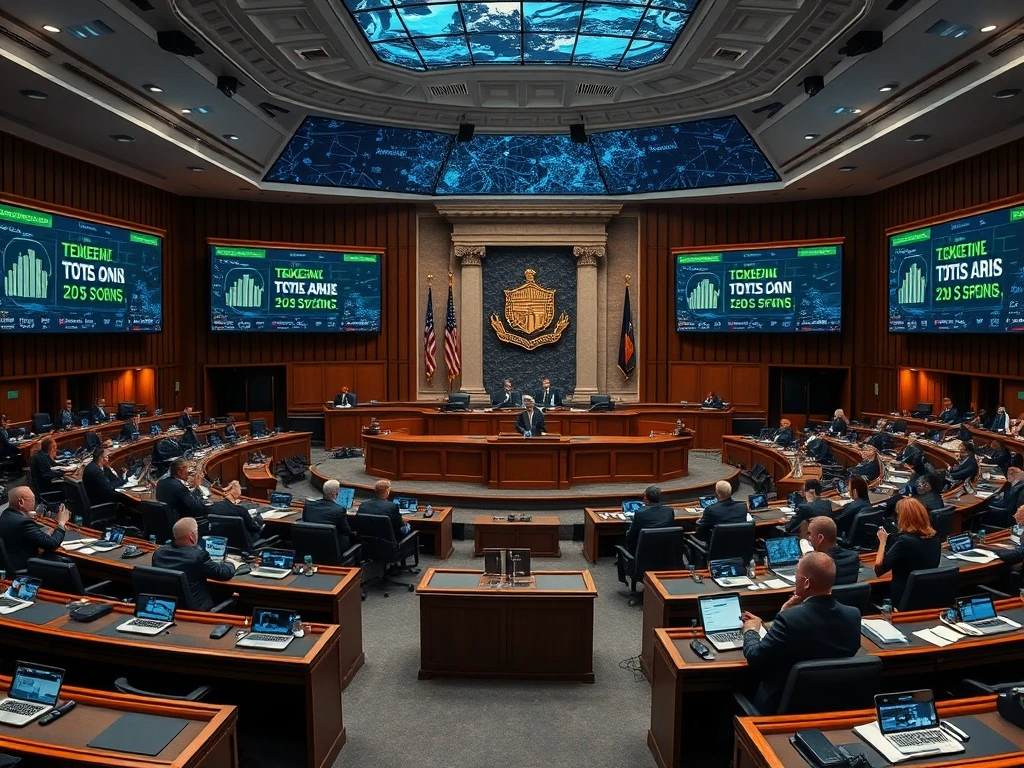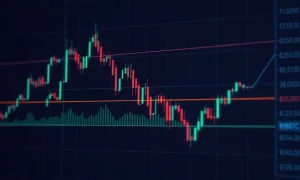Investors and crypto firms face mounting uncertainty as the U.S. Senate moves to classify tokenized stocks under existing securities frameworks, potentially reshaping the entire digital assets landscape. This regulatory shift could determine whether the $342 million tokenized equities market thrives or faces significant constraints.
Senate Legislation Targets Tokenized Stocks Classification
The U.S. Senate has introduced crucial updates to the Responsible Financial Innovation Act of 2025. Consequently, these changes specifically address tokenized stocks and their regulatory status. Senator Cynthia Lummis leads this bipartisan effort to clarify oversight boundaries. The bill ensures tokenized stocks remain classified as securities rather than commodities. This distinction aligns them with traditional broker-dealer frameworks. Moreover, it provides clearer investor protection guidelines.
Regulatory Division Between SEC and CFTC
The legislation clearly divides oversight responsibilities between regulatory agencies. The Securities and Exchange Commission handles tokenized stocks as securities. Meanwhile, the Commodity Futures Trading Commission oversees commodity-based digital assets. This separation aims to prevent regulatory gaps. Additionally, it establishes consistent enforcement standards. The Senate Banking Committee will vote on SEC provisions this month. The Agriculture Committee considers CFTC oversight in October.
Industry Calls for Developer Protections
A coalition of 112 crypto firms advocates for crucial safeguards. These companies seek protections for software developers and non-custodial services. They warn that outdated regulations could misclassify innovators as financial intermediaries. Such misclassification might drive talent overseas. Data shows the U.S. share of blockchain developers dropped from 25% to 18% since 2021. Therefore, clear guidelines are essential for maintaining competitiveness.
Global Regulatory Concerns Emerge
International regulators express significant concerns about tokenized stocks. European Securities and Markets Authority officials worry about investor comprehension. Many retail investors misunderstand tokenized stock structures. These assets represent shares held in special-purpose companies rather than direct equity. The World Federation of Exchanges warns about market fragmentation. Tokenized stocks traded outside regulated markets could drain traditional exchange liquidity.
Market Growth Amid Uncertainty
Despite regulatory challenges, the tokenized equities market continues expanding. xStocks recently launched on Ethereum, offering 60 major tokenized stocks. The platform includes NVIDIA, Amazon, Tesla, and Walmart tokens. However, the market remains relatively small at $342 million. This represents only 1.2% of the tokenized real-world asset market. Legal experts note tokenized stocks may lack traditional protections and voting rights.
Path Forward for Tokenized Stocks
The Senate aims to pass legislation before year-end. Bipartisan negotiations continue to address Democratic concerns. Regulatory clarity could significantly impact market growth. Proper frameworks might enhance investor confidence. Conversely, excessive restrictions could stifle innovation. The outcome will shape how traditional assets integrate with blockchain technology.
Frequently Asked Questions
What are tokenized stocks?
Tokenized stocks are digital representations of traditional equities on blockchain networks, backed by actual shares held in custody.
Why does the Senate want to classify them as securities?
Classification as securities ensures existing investor protection frameworks apply, maintaining consistent regulatory standards across markets.
How might this affect investors?
Investors could benefit from clearer regulations but may face limitations compared to traditional stock ownership rights.
What platforms currently offer tokenized stocks?
xStocks operates on Ethereum, Solana, BNB Chain, and Tron, offering tokenized versions of major company stocks.
When will the Senate vote on this legislation?
Committee votes occur throughout September and October, with a full Senate vote possible as early as November.
Could this drive innovation overseas?
Industry leaders warn that unclear regulations might push developers to more crypto-friendly jurisdictions, reducing U.S. competitiveness.








